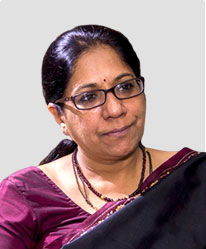Contraception is not a woman’s responsibility alone, involve men too. There is a need for equal and shared responsibility to be taken by men and women in all areas of sexual and reproductive health.


Need for equal and shared responsibility
There is a need for equal and shared responsibility to be taken by men and women in all areas of sexual and reproductive health. This requires working at different levels with varying partners to address the norms that undermine access and perpetuate gender inequality.One of the challenges is lack of male involvement in family planning. The low levels of men’s involvement are reflected, to an extent, in the very low use of male contraceptives. According to the latest data presented in Parliament by union health ministry in 2019, the national average for current use of male family planning methods i.e. male sterilization and condom) is only 5.9%. Male sterilization declined from 1% (NFHS-3) to 0.4 % (NFHS-4).
Significant barriers remain towards increasing male involvement in family planning. One of the barriers is the perception that contraception is a women’s issues. As per NFHS 4, three in eight men believe that contraception is women’s business and that men should not have to worry about it. Secondly the acceptance of male methods of contraception is marred by number of myths and misconceptions. Perceived procedure related barriers are the most important cause for not accepting vasectomy. There has been many discussions and concerns regarding probable negative health consequences emerged from vasectomy.
Increasing male participation in family planning
Increasing male participation is an integral part of family planning programme intervention. To increase male participation in family planning Government of India is moving forward in a more systematic and sustained efforts such as training of service providers in No Scalpel Vasectomy (NSV) to enhance the pool of service providers, substantial increase in the compensation for male sterilization under the enhanced compensation scheme for sterilization, observation of ‘Vasectomy Fortnight’ every year in all states, condom boxes set up in facilities to enable clients to access condoms in privacy and a 360-degree media campaign underlining the role of men in family planning to encourage men to adopt family planning methods.
Reasons Vasectomy is unpopular:
- Unmet need for family planning expressed by women is found to be more than that by men.
- Socio cultural belief is that family planning is woman’s responsibility.
- Though awareness about vasectomy, not many know about less traumatic, simpler technique of NSV thus, fear of procedure and pain.
- Misconceptions: fear of loss of libido, physical strength
- Family Planning linked largely to Maternal Health and men are left out
- Ground force of health workers mostly women (ASHAs, ANMs) find it easier to convince women for female sterilization
- Shortage of NSV providers
- Very few accredited private health facilities
- Administrative level barriers and delays in the conditional cash transfer.
Several features of Vasectomy:
- Less invasive with minimal tissue trauma,
- Lower discomfort and complication rates,
- No incision, no stiches,
- Faster completion of procedure,
- Minimal post procedure pain and bleeding
- Speedier recovery as compared to recovery after the conventional procedure.


FPA India is one of the largest sexual and reproductive health organisations in the country. It works to empower all, to enjoy their sexual and reproductive health choices and rights in an India free from stigma and discrimination. FPA India pioneered the family planning programme in India in close collaboration with the government in the 1950s. Since then FPAI has been contributing to Government of India’s national health programme with a pan India presence including West Bengal. Through its 45 branches and projects across the country, FPA India reaches out to over 30 million people every year.


Ms Amita Dhanu
Assistant Secretary General (Programme Implementation)
FPA India
Co-Author: Dr Nilesh Patil, Technical Programme Manager and Project Lead, FPA India











